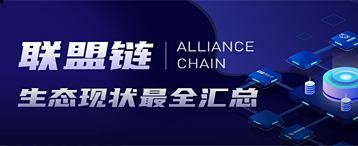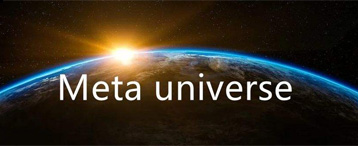-
What is an advantage of using blockchain technology all transactions are approved
 linkweb3
linkweb3 2023-01-06
2023-01-06 5093
5093 Tech
Tech
-
Summary:What is an advantage of using blockchain technology all transactions are approved. The value of the blockchain is derived from it that it can share data in a fast and safe manner -without any entity to bear the responsibility of protecting data or promoting transactions.
The value of the blockchain is derived from it that it can share data in a fast and safe manner -without any entity to bear the responsibility of protecting data or promoting transactions. Well -known companies, government agencies and non -profit entities are using blockchain to improve the existing processes and enable new business models. In this article, what are the benefits of blockchain technology with you.
What is blockchain technology?
The Internet enables people and companies to cooperate in new ways in the Internet and the community, and individuals can build, autonomy and prosper in them. By promoting decentralized and transparent collaboration and value exchange in such settings, blockchain technology is writing a new chapter in Internet history. However, what is the blockchain? What are the advantages and benefits of blockchain technology?

Blockchain technology is a decentralized distributed ledger, which maintains economic transaction records through computer or node networks. Blockchain uses decentralization and encryption to make the history of any digital assets unchanged, safe and visible. In 2008, Satoshi Nakamoto introduced the blockchain as the underlying technology of Bitcoin.
Because the blockchain uses a distributed ledger, transactions and data are recorded in multiple positions. All network participants with access rights see the same information at the same time, providing complete transparency. All transactions have records that cannot be changed and have time and date.
The biggest benefit of using blockchain technology
1. Data integrity
The design method of blockchain technology makes any blocks or transactions added to the chain cannot be edited, which has achieved a very high level of security. This is a significant benefit of using blockchain technology, and one of the best answers to the advantages of blockchain technology.
2. No review
Blockchain technology is considered to be no review because it is not controlled by a single party, but is controlled by reliable node concepts to verify and use the consensus agreement to verify and use smart contract approval transactions.
3. Verify
Use blockchain technology to decentralize storage information so that everyone can verify the accuracy of the data through zero knowledge proof, that is, one direction of the other party to prove the accuracy of the data without disclosing any data. It is also a major advantage of blockchain.
4. Distributed
Because blockchain data is often stored in thousands of devices in distributed node networks, the system and data have strong resistance to technical failures and malicious attacks. Because each network node can copy and store the database copy, there is no single -point failure. This makes the blockchain network more reliable because they are unlikely to fail or damage data, which makes it one of the better advantages of blockchain technology.
5. Traceability
The blockchain format aims to create an irreversible audit tracking so that any addition in the tracking chain becomes simple and easy.
6. Unknown
Because blockchain technology is decentralized, any change will be reflected on all nodes and cannot be fraud. Therefore, it can be claimed that transactions are tampered with. Tamperery is one of the biggest advantages of blockchain and one of the most powerful answers to the question "What is the advantage of using blockchain technology".
7. Open
One of the advantages of blockchain technology in the supply chain is that everyone can access it. This means that anyone can contribute to blockchain technology; adding a distributed network does not require anyone's permission.
8. Stability
Once registered in the blockchain, it is difficult to delete or change data. Because each change is tracked and recorded permanently on distributed and public classification accounts, blockchain is an excellent technology for storing financial records or any other data that needs to be audited.
9. Security
Blockchain technology is very safe, because each member of the blockchain network will receive a unique identity associated with its account. In addition, the block encryption in the chain makes it more difficult for any hacker to destroy the traditional settings of the chain. The first -class security is the leading advantage of using blockchain technology, and one of the best answers to the question of "the advantage of using blockchain technology".
10. Fast processing speed
Before the invention of the blockchain, traditional banking institutions need to deal with and initiate transactions for a long time, but with blockchain technology, the transaction speed has increased significantly. In the past, the entire bank process took about three days to complete, but with the introduction of the blockchain, the time was shortened to a few minutes or even a few seconds. Increasing the speed of excellent security, do you now know what the advantages of using blockchain technology is one of the key answers?
11. No third -party intervention
The use of blockchain technology cryptocurrencies are not controlled by any government or financial institutions. This means that no government can affect the value of the currency.
12. Security transaction
The blockchain of all transactions cannot be edited or manipulated. Both parties and the public can view the transaction data at any time. This increases the security of online transactions.
13. Instant transactions
The transaction using blockchain technology is completed within a few minutes. Consider bank transactions with people with different bank accounts. It takes at least two days to complete the transaction. At this point, people who use cryptocurrencies to perform virtual transactions can complete a series of transactions.
14. Trust
Blockchain builds trust between trusting or unproven different entities. Therefore, these entities are willing to engage in business transactions involving transactions or data sharing, and these transactions or data sharing may not be done by them, or they originally needed an intermediary. The realization of trust is one of the most commonly mentioned benefits of the blockchain. Its value is obvious in the early use of blockchain. These cases promote transactions between entities that are not directly related but still must be shared or paid. Generally speaking, Bitcoin and cryptocurrencies are typical examples of trust in blockchain how to build trust between participants who do not know each other.
15. Reduce cost
The nature of the blockchain can also reduce the cost of the organization. It improves the efficiency of handling transactions. It also reduces manual tasks such as summary and modification data, and simplifies the report and audit process. Experts pointed out that the savings of financial institutions when using the blockchain, and explained that the capacity of blockchain simplifies and settlement and settlement is directly transformed into a process cost savings. More broadly, blockchains can reduce costs by eliminating middlemen -suppliers and third -party suppliers -to help companies cut costs. These intermediaries traditionally provide the processing that the blockchain can do.
16. Token
The tokenization is the process of converting the value of assets (whether it is physical assets or digital assets) to digital token, and then records on the blockchain and shared through the blockchain. Joe Davey, the technical director of Global Consulting company West Monroe, said that the tokenization has become popular in digital art and other virtual assets, but token has a wider range of applications and can make business transactions smoother. For example, public utilities can use tokenization to trade carbon emissions quotas under the carbon limit plan.
17. Innovation
Leaders in multiple industries are exploring and implementing blockchain -based systems to solve difficult problems and improve long -term tedious practices. Field quotes the use of the blockchain to verify the information on the job seeker's resume as an example of such innovation. Studies have always showed that a large proportion of people will forge their resumes and let recruitment managers take the time -consuming task of manual verification information. However, the pilot project allows participating universities to put the data of their graduates and their degrees on the blockchain, and then the authorized recruitment managers can access these data, which helps to solve these two problems -understand the truth and the truth and the truth and the truth and Quickly and effectively understand the truth.
The advantages of blockchain on non -blockchain database
• No variability. Blockchain supports invariance, which means that it is impossible to delete or replace records. Therefore, the blockchain can prevent data in the network from tampering.
Traditional data does not have no variability. Traditional databases use CRUD (creation, read, update, and delete) at the primary level to ensure that the application runs normally. The CRUD model makes the data erase and replacement easier. Such data can be easily manipulated by rogue administrators or third -party hackers.
• Transparency. The blockchain is decentralized, which means that any network member can verify the data recorded in the blockchain. Therefore, the public can trust the network.
On the other hand, traditional databases are centralized and do not support transparency. Users cannot verify the information at any time, and the management department will disclose a set of selected data. However, individuals still cannot verify data.
• An examination. Blockchain technology is not reviewed because it does not control any party. Therefore, no single institution (including the government) can interrupt the operation of the network.
At the same time, traditional databases have central power agencies to regulate the operation of the network, and power institutions can review them. For example, banks can suspend user accounts.
• Tationtability. Blockchain creates an irreversible audit tracking that allows easy tracking changes on the network.
Traditional databases are neither transparent nor unable; therefore, permanent tracking cannot be guaranteed.
SWOT analysis of blockchain technology
1. Advantage
Operational efficiency.
It makes it easy for shared information about specific projects or transactions. It will no longer distribute materials. Everything can be registered on the blockchain now.
Data encryption and tampered with storage.
Delete a central institution that has complete access rights for data.
2. Opportunity
The platform is used for big data and analysis.
Return to the control to users; for example, you can control who can access your data instead of Google and Facebook to use your data. All these authorizations will be recorded on the blockchain.
As the world becomes more and more digital, more and more people have accepted the blockchain as a concept in daily life.
3. Weakness
Scalability is a challenge.
Few technology consumes too much energy.
High implementation costs.
4. Threat
Scalability problem: Although there are many solutions available, there are too many transactions (overload).
Mining pools and large mines are unpopularized examples.
Quantum computers have the ability to decode data (in the future).
Hype and rapid changes.
Mining attacks and hacking attacks are always possible.
FAQs:
1. What are the advantages of blockchain technology?
Blockchain technology has many advantages and disadvantages. However, its advantages such as verification, transparency, invariance, multifunctional and security have replaced its shortcomings.
2. What are the disadvantages of blockchain technology?
Although blockchain technology has several advantages and disadvantages, its disadvantages include lack of scalability, energy dense, lack of complete anonymity (because the public can access the classification accounts and the transaction is tracked), and the lack of speed to satisfy the speed to satisfy the speed of satisfaction. Collective verification needs transaction is some issues that need to be handled by technology.
3. What is the biggest problem with blockchain technology?
Although the blockchain technology has advantages and disadvantages, the biggest problem is that it cannot expand into a feasible solution suitable for large -scale adoption. However, it is progressing in this regard.
4. Can the blockchain be attacked by hackers?
Although it is very difficult to crack the blockchain, a higher degree of attacks, such as 51% attack, hackers control 51% or more network resources, which can destroy the blockchain network. Blockchain is a highly distributed global network that does not give power such as a single entity.
The above content introduces the benefits of using blockchain technology. Blockchain is a revolutionary technology that will have a huge impact on each industry. At present, many large companies have already used blockchain technology. We have reason to believe that the future of blockchain technology will be very promising.
Disclaimer:As an open information publishing platform, shilian only represents the author's personal views and has nothing to do with shilian. If the article, picture, audio or video contains infringement, violation or other inappropriate remarks, please provide relevant materials and send it to: 2785592653@qq.com.
Hint:The information provided on this site does not represent any investment suggestion. Investment is risky, and you must be cautious when entering the market.
ShilianFan group:Provide the latest hot news, airdrop candy, red envelopes and other benefits, WeChat: rtt4322.
















